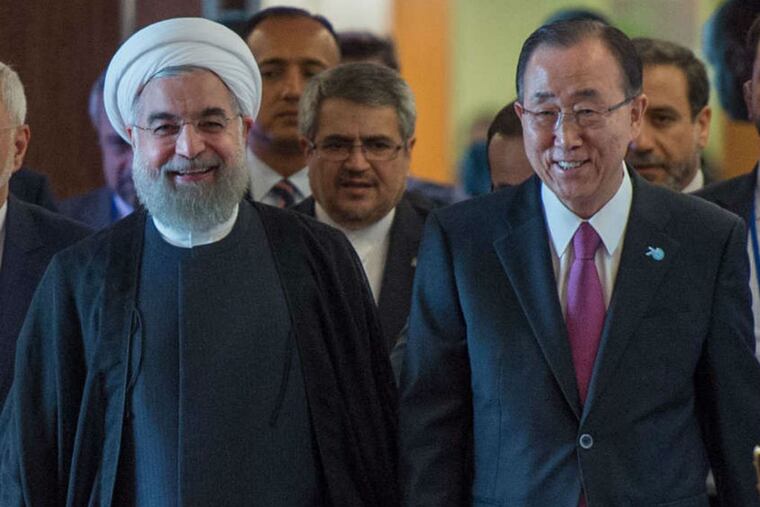Self-inflicted irrelevance is harming Congress
The Obama administration's agreement with Iran over its nuclear development program presented American policymakers with one of the most significant national security decisions this country has faced in many years.

The Obama administration's agreement with Iran over its nuclear development program presented American policymakers with one of the most significant national security decisions this country has faced in many years.
There are legitimate questions about the agreement's merits, and we differ on how we would have voted if we were still in Congress. But we agree that the nature of the congressional debate over the agreement points to a serious problem that threatens to jeopardize America's global leadership and strength.
In short, the extreme partisanship in Congress, fully evident on this issue, erodes the capabilities and legitimacy of the institution and, at the same time, diminishes America's influence abroad.
Because members of one political party stood in unanimous opposition to the agreement and the other party was almost as unanimous in its support, it was obvious that party loyalties, including support or opposition based on whether one was a member of the president's party, played a significant role in determining where members stood. Democrats largely refused to challenge President Obama or consider legitimate criticism; Republicans were determined to derail the agreement.
This deal is so consequential that party loyalty, or loyalty to (or opposition to) a president, should have had no bearing on each member's decision.
Partisanship simply trumped Congress' constitutional duty to give a final say on matters of vital national security. Though presidents are the drivers of American foreign policy, necessarily taking the initiative, Congress remains the decider, the primary policymaking body in our constitutional government, including on most questions of foreign policy.
Congress has authority to review important foreign policy agreements and approve them or not, and, when they are approved, the responsibility to ensure that they are implemented wisely. Congress members' support or opposition does not relieve them of these responsibilities.
In a complex and fast-moving world, any skillful White House, regardless of the occupant's political affiliation, will move quickly to fill any power vacuum Congress creates. In order to be effective and meet its constitutional obligations, Congress must be serious, focused, and able to act responsibly on important matters of national security. If thoughtless partisanship or outright avoidance is all Congress can offer, it automatically cedes policymaking power to the president. As a result, the constitutional model is weakened over time, presidents become stronger, and the people's representatives lose the authority the Constitution grants them.
When Congress does not meet its obligations to provide a check on executive branch power, our unique form of self-government suffers. Both branches, the executive and the legislative, need to work for our government to function well.
We, too, faced difficult questions of foreign policy during our tenures in Congress. We had our fair share of internal dissent over complex issues, but we kept in mind that in foreign policy, we weren't just representing our constituents. We were representing the United States to both our friends and our enemies abroad. That's not to say we all agreed, but we understood what Republican Sen. Arthur Vandenberg meant when he urged that partisan politics stop at the water's edge. We knew we had to embrace our responsibility to debate and act, including limiting our partisan point-scoring, on matters of vital national interest.
Congress has a critical role to play in foreign affairs, but it takes statesmanship and leadership to play it. America's economic and military strength is indispensable to global order. But there is no preordained or permanent role for American leadership in the world. If that role is to endure, Congress must be an active partner in preserving it.
Congress' self-inflicted irrelevance is dangerous to our democracy during this time when America's global leadership and special role in the world are at stake. Congress and the president now have the responsibility of effective oversight over the Iran nuclear deal, especially to make sure that compliance promises by the Iranians are rigidly honored. Such a partnership can protect the American people from potential undesirable consequences.
In light of the important challenges presented by this agreement, we urge members of Congress to set aside their partisan loyalties and decide issues on their merits and no other basis.
Mickey Edwards was a Republican congressman from Oklahoma from 1977 to 1993. mickey.edwards@aspeninstitute.org
Dan Glickman was a Democratic congressman from Kansas from 1977 to 1995.@DanRGlickman